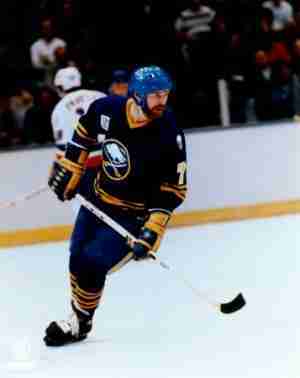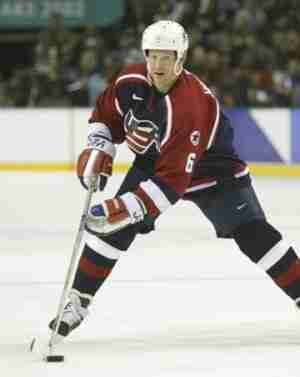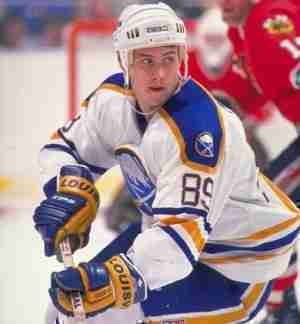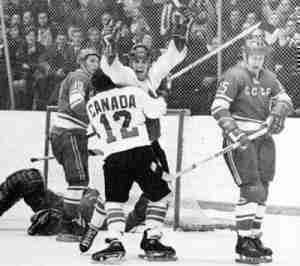Site Admin
21. Rick Martin
As part of Buffalo’s vaunted “French Connection” line, Rick Martin was part of the most exciting lines in hockey in the 1970s. Martin was a lethal sniper and once he mastered his defensive skills was one of the better two-way players in hockey. With two 50 goal seasons (not exactly easy in the ’70s) and as a perennial All-Star, Martin should have enjoyed some success in the ’80s and have a steady decline into his 30’s the way most star players do. Sadly, a brutal injury in November of 1980 essentially put an end to his career, and he only played a handful of games after. Had Rick Martin made it through at least a few of the free-wheeling 80’s, his career stats would have likely been padded sufficiently to make the Hall. Currently, he remains one of the top stars of the 70’s on the outside looking in.
Phil Housley
4. Alexander Mogilny
Alexander Mogilny may not go down as the best player (though he is up there) to come from Russia but he may be the one who broke down the most barriers in the NHL. Mogilny was the first player from the Soviet Union to defect to the west, the first Russian to make an NHL All-Star Team, and the first European to be an NHL captain. Mogilny was a brilliant scorer whose whopping 76 goals led the league in the 1992-93 season. Although hip injuries prevented him from keeping that scoring touch late in his career, “Alexander the Great” went down as the second leading Russian scorer in NHL history and is a select member of the Triple Gold Club (Olympic Gold, World Championship Gold, and Stanley Cup). It shouldn’t be a surprise if Alexander Mogilny is the next Russian to enter the Hall.
41. Paul Henderson
With 477 career NHL points (and 283 in the WHA), the professional statistics speak to a very good player but not that of the Hall of Famer. This is very much the consensus of most hockey pundits and fans alike. However, we all know of that intangible of the 1972 Canada/Soviet Union Summit Series. Coming off his most productive NHL year with 38 goals, Henderson was an afterthought selection to team Canada. Henderson responded with the best hockey of his career leading the tournament with ten points. Of course, it was that final point, a goal with thirty four seconds remaining that he will known forever for. That goal won the series and made him an icon in Canada. It is a moment that is played over and over again on Canadian television, and will be replayed for generations to come. When critics say that Paul Henderson would not be in the Hall of Fame discussion if he hadn’t scored “the goal” but what they have to remember is one thing: HE DID score that goal.





